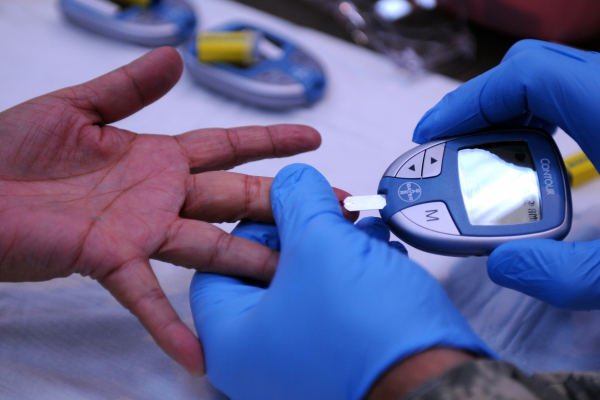
By Johannes Marisa TECHNOLOGICAL innovation is one thing that can determine the direction of any organisation. Change management may be a daunting task, but with determination, nothing will fail. It is high time Zimbabwe’s health system adopted medical e-cards that Tres Group International (TGI) is spearheading. The aim is to have an efficient health delivery system.
TGI is an organisation operating in Zimbabwe that was created to optimise the healthcare industry and prepare it for the future through evolutionary innovation. The vision is to provide a financial risk shield and healthcare access to Africa. It is undeniable that there is obvious acrimony between health funders and service providers in Zimbabwe.
The end result is a negative impact on the patients who will be forced to fork out more money to cater for the existing gaps. Claim forms sent to medical aid societies (MASes) meet different fates which include complete rejection, partial or complete acceptance. The excuses given by MASes are many.
Some of them include missing claim forms, inconspicuous papers, ineligible signatures, wrong tariff codes to mention just but a few. Technological innovations should come in to expedite numerous processes that involve service providers and MASes.
Medical practitioners, government representatives and MASes met to scrutinise the technological innovation that TGI intends to introduce. It appears quite promising as it proffers long-term solutions to perennial problems in healthcare industry. The organisation has created a healthcare instant payment platform which will see medical practitioners being equipped with Smart point-of-sale (POS) machines that will enable instant payment to medical service providers.
This will eliminate paper claim forms as well as forward pricing with a positive effect on out-of-pocket expenses. I liked the idea of fraud mitigation because the Smart POS has fingerprint facilities, does facial recognition and has iris scanner with it. If that innovation is adopted by both medical practitioners and medical aid societies, then the year 2022 will bid farewell to the acrimony between the warring parties.
The MASes are regulated under the Medical Services Act (Chapter 15:13) that deals with both the registration and cancellation of medical aid societies. Different practitioners deal with MASes, among them are medical doctors, dentists, scientists, physiotherapists, occupational therapists, pharmacists, nurses and medical psychologists.
The tiff between service providers and MASes has been there for years and it is unpalatable. This has worked much to the detriment of smooth health delivery with patients bearing the brunt of the resentment. Many patients think that medical practitioners are always the ones to blame for disjointed service, yet the health funders have their share of the blame.
- Chamisa under fire over US$120K donation
- Mavhunga puts DeMbare into Chibuku quarterfinals
- Pension funds bet on Cabora Bassa oilfields
- Councils defy govt fire tender directive
Keep Reading
Other than the issue of payments, there are other issues that infuriate service providers:
Dictation to service providers — The bully mentality shown by some MASes is worrisome and absurd. It is unfortunate that there are some MASes that refuse to honour some medical investigations like Computed Tomography Scans, if they are ordered by general practitioners.
I wonder if these MASes think the doctors are not qualified to determine if a patient needs such a scan or not. Such kind of thinking that belittles our well-trained practitioners will not help alleviate the acrimony but will add insult to an injury.
Unilateralism on tariff gazetting — MASes have often been accused of unilaterally coming up with tariffs that suit them. In 2015, the Zimbabwe Medical Association agreed with MASes on particular tariffs like those for initial consultation and subsequent visits. Unfortunately, the agreed tariffs were not implemented by MASes and the tension persisted.
There is no meaningful negotiation that materialises when one acts as a superpower to manipulate everyone. Service providers have often responded by further flexing their muscles in order to remain afloat, especially during this COVID-19 era where the costs of running clinics, surgeries or hospitals are spiralling.
MASes have also raised some issues which I think can be alleviated by technological innovations to be introduced. These include:
- Fraudulent claims — There are cases of false claims that are purportedly sent to MASes yet some of the patients were never seen at the medical centres, a situation which no one condones. That practice should stop forthwith if ever it was there.
- Overcharging patients — The issue of overcharging has been raised several times, but has gained prominence, especially during the COVID-19 era. While those who are not on the ground might not realise how expensive COVID-19 management is, the practitioners will argue that the cost of sundries and medicines is horrendous. COVID-19 has brought misery and anguish. Service providers cannot remain viable when treating COVID-19 patients when some MASes take two full months to pay yet cash is needed to purchase drugs, sanitisers, personal protective equipment, pay salaries including risk allowances.
Let us all embrace technology and innovation. The instant payment system will surely be accepted by many service providers.











